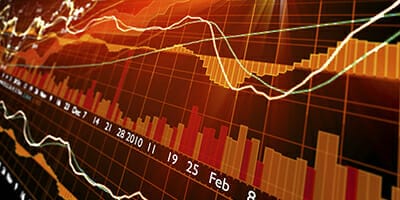A study ranking the world’s stock exchanges against disclosure on sustainability themes ranks the BME Spanish Exchange at the top. But the study’s author managing director of CK Capital, Doug Morrow, says stock exchanges need a nudge by regulators to enforce tougher disclosure standards.
The world’s stock exchanges “need a bit of a nudge” from regulators to enforce tougher sustainability disclosure standards, according to Doug Morrow, managing director of CK Capital.
Morrow is lead author of a new report that ranks stock exchanges on their disclosure practices and analyses the best policy environments for improved disclosure.
“I’m sensitive that stock exchanges are in the business of listing companies and tightening standards could discourage some entities,” he says.
Morrow criticises this as a frequently aired “knee-jerk response” before contending that “I find a lot of exchanges haven’t really investigated whether potential listings would actually be discouraged by tougher disclosure requirements.”
Morrow feels the growing demand from investors for sustainability disclosure requires more action from exchanges.
He argues that more investors are asking how much energy or water that listed companies use.
“I don’t think this burden is heroic,” he says.
In evaluating its value to institutions, Morrow supports the view that sustainable investing helps meet investors’ fiduciary duty to maximise risk-adjusted returns.
“If you look at some sustainability criteria, they are actually predictive of alpha and are as effective as some of the conventional ratios that analysts now use to predict stocks,” Morrow argues.
Monitoring companies’ energy over revenue or health-and-safety data can be every bit as useful as looking at trailing P/E ratios or enterprise values, he reckons.
“Just because this is a new kind of data it does not mean performance on sustainability metrics are at odds with risk-adjusted returns,” says Morrow, “and if you agree with that, clearly the more data that is disclosed by companies, the better.”
Real disclosure in Madrid
The CK Capital study “Trends in Sustainability Disclosure: Benchmarking the World’s Stock Exchanges”, ranked the world’s stock exchanges by checking their listed companies against disclosure on seven themed sustainable elements.
It looks at seven “first generation sustainability indicators” which are employee turnover, energy, GHGs, lost-time injury rate, payroll, waste and water.
The BME Spanish Exchanges emerged as the leading bourse in the world, followed in the top five by the Helsinki, Tokyo, Oslo and Johannesburg exchanges.
One striking feature of the report’s rankings is the dominance of European stock exchanges at the top.
This is particularly apparent relative to North American exchanges, which scored rather unimpressively against the report’s criteria, with as many as 16 European exchanges rated better than the best North American bourse (Toronto in 30th place).
Morrow confesses the European flavour at the top of the rankings came as no surprise and European countries have been at the forefront of sustainability disclosure for a long time.
“Both European institutional investors and governments deserve plaudits for encouraging more advanced corporate disclosure,” he says.
US and Canadian regulators have some catching up to do due to a “relative dearth of substantive disclosure policies in North America”, argues Morrow, despite praising the SEC’s “pretty interesting” 2011 environmental disclosure guidelines.
One of the reasons, he says, has been less integration of sustainable criteria into institutional investment selection in North America – with some incredible exceptions like CalPERS – has also kept demand for heightened disclosure from companies in the region relatively low.
It demonstrates the impact, and influence, of the institutional investor community.
A trend that Morrow keenly emphasises is that the rankings, in their second year, show a rapid closure of the sustainable disclosure gap between the developed and emerging world.
“Listed companies in emerging markets are catching up on our indicators with many emerging market exchanges eking out leadership positions,” Morrow says.
Exchanges in India, Singapore, the Philippines and South Africa have been particular active on disclosure.
Part of the reason is the greater freedom that regulators have to act in many emerging markets is a key advantage, reckons Morrow. Increasing recognition of the need for companies to compete globally for investment is another major driver, he adds.
Policy signpost
The CK Capital report suggests that sustainability disclosure is aided by “super policies”– defined as mandatory, prescriptive and broad.
It recommends basing these policies on standards developed by the likes of the Global Reporting Initiative.
“When you look across the world there are a lot of examples of these kinds of policies already out there,” says Morrow.
Praise is given to France’s Grenelle II policy, which sets disclosure obligations on as many as 42 sustainable fields for all companies with more than 500 employees or €100 million in revenue or assets.
The Indian Security Regulators’ Business Responsibility Reports initiative is meanwhile held as a shining example of how emerging markets can forge the way ahead.



